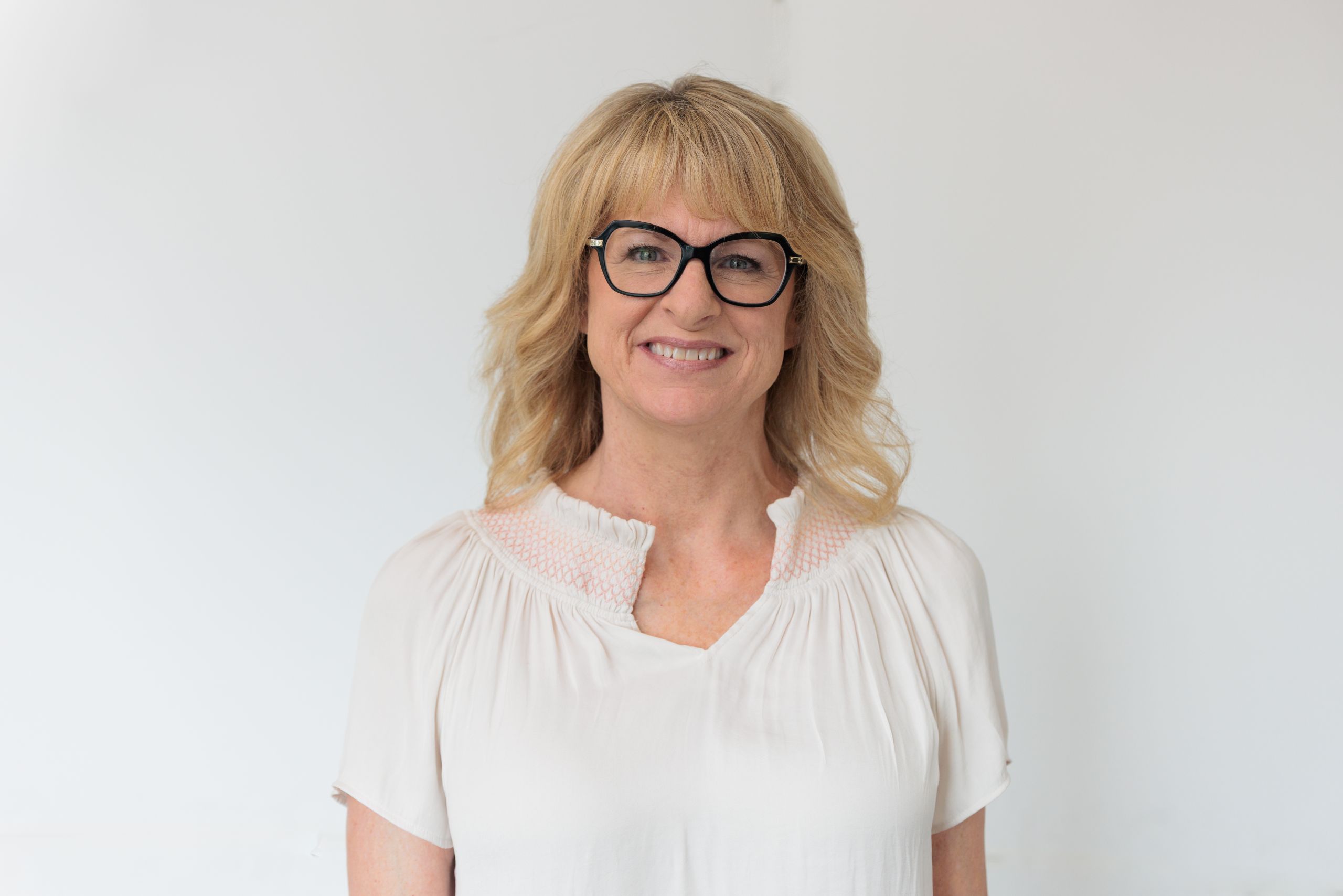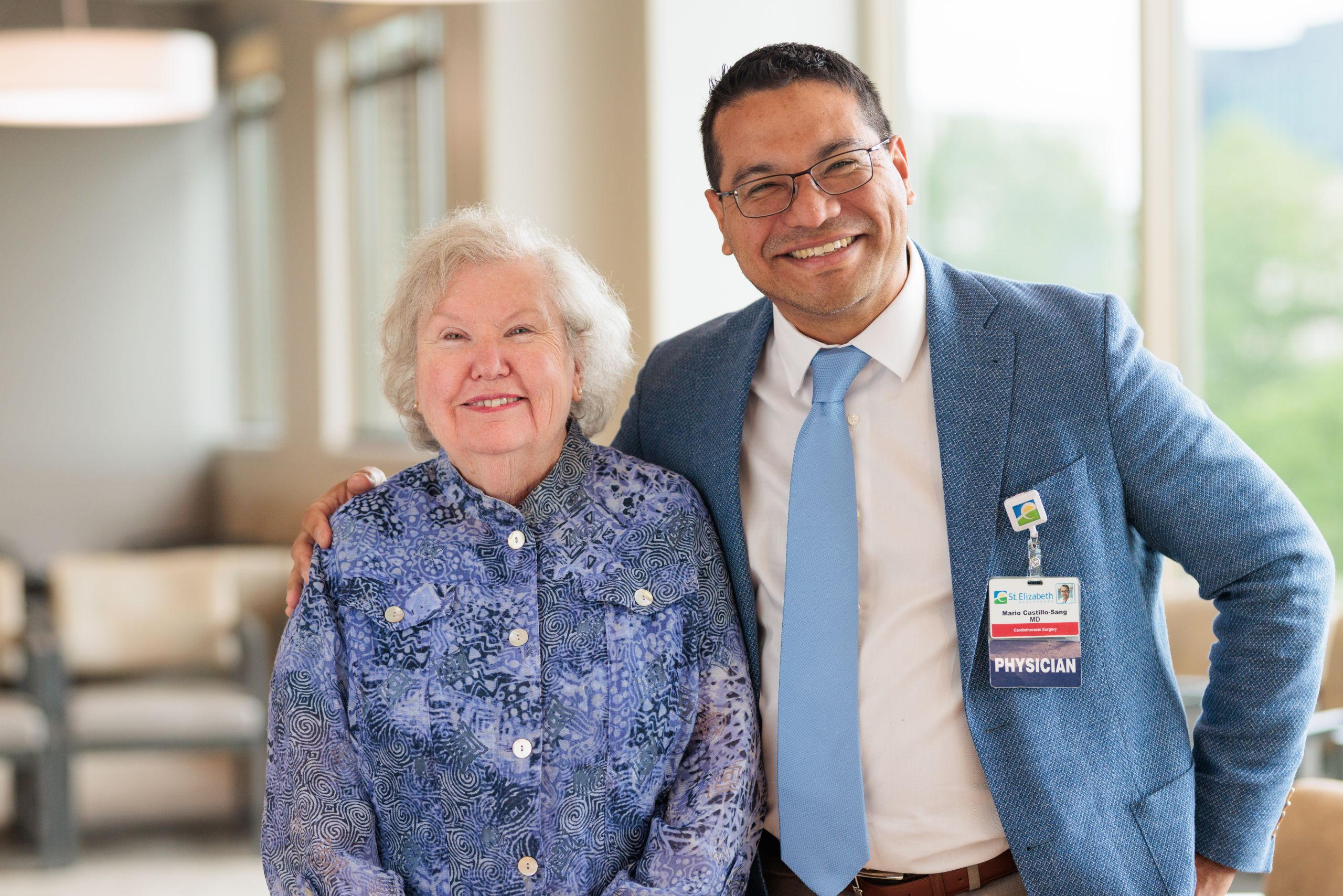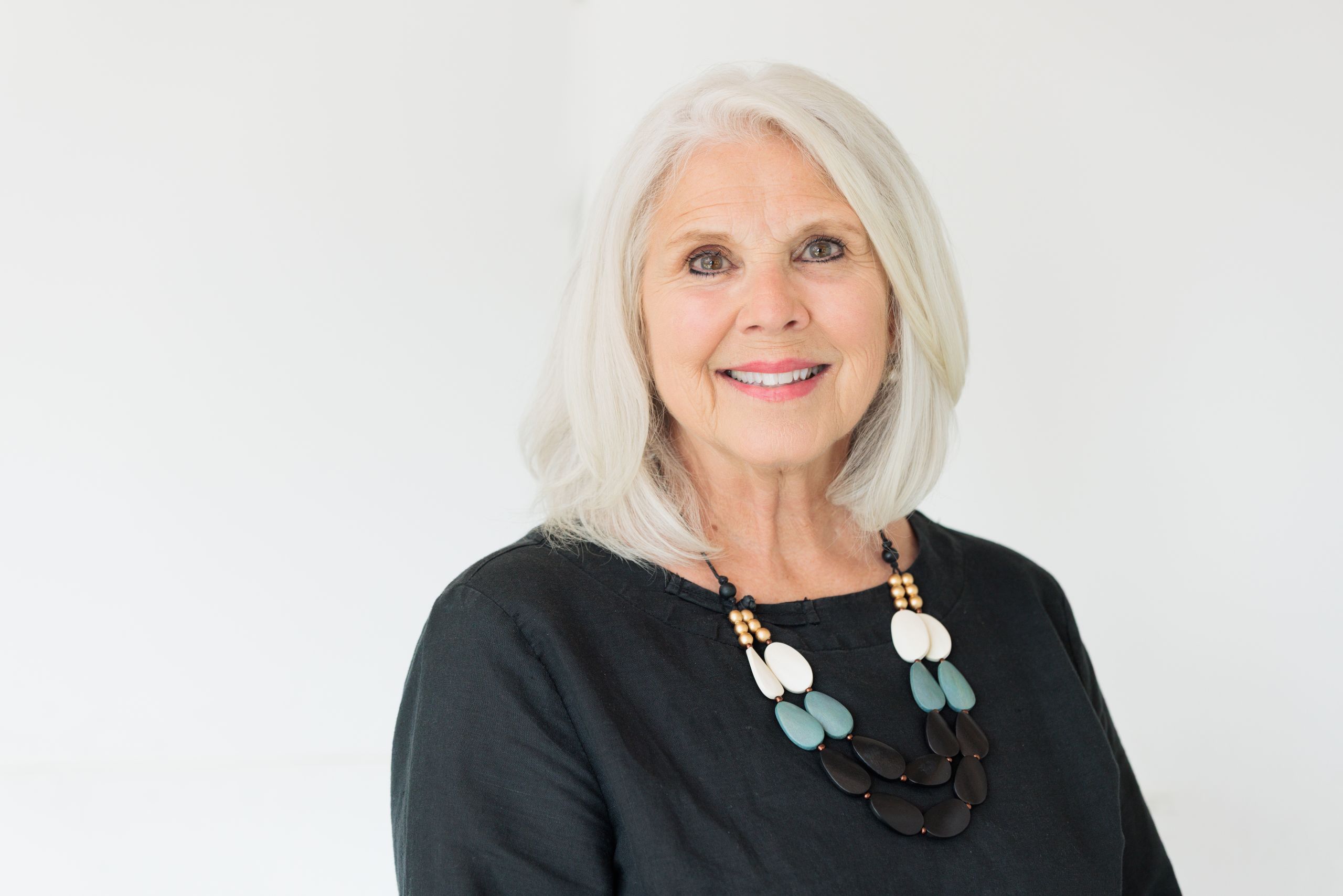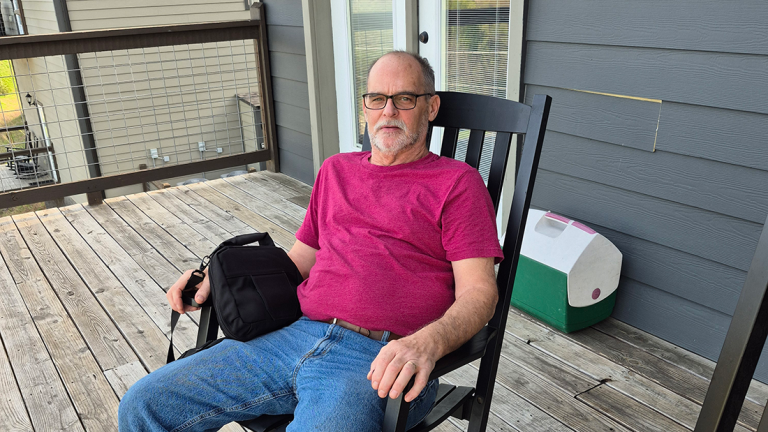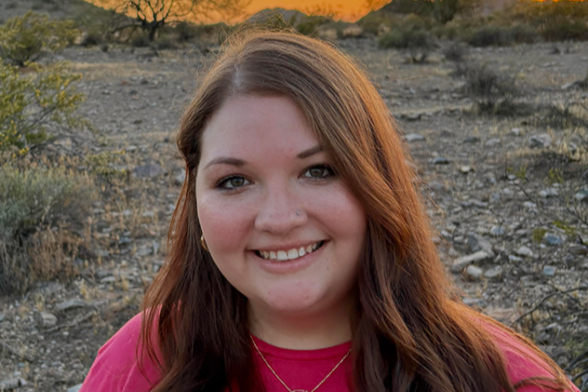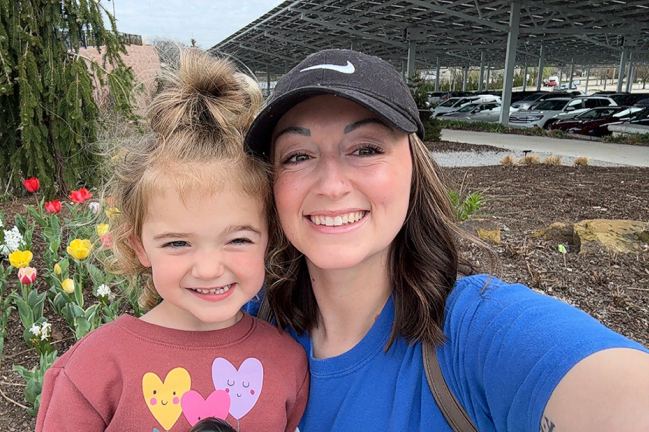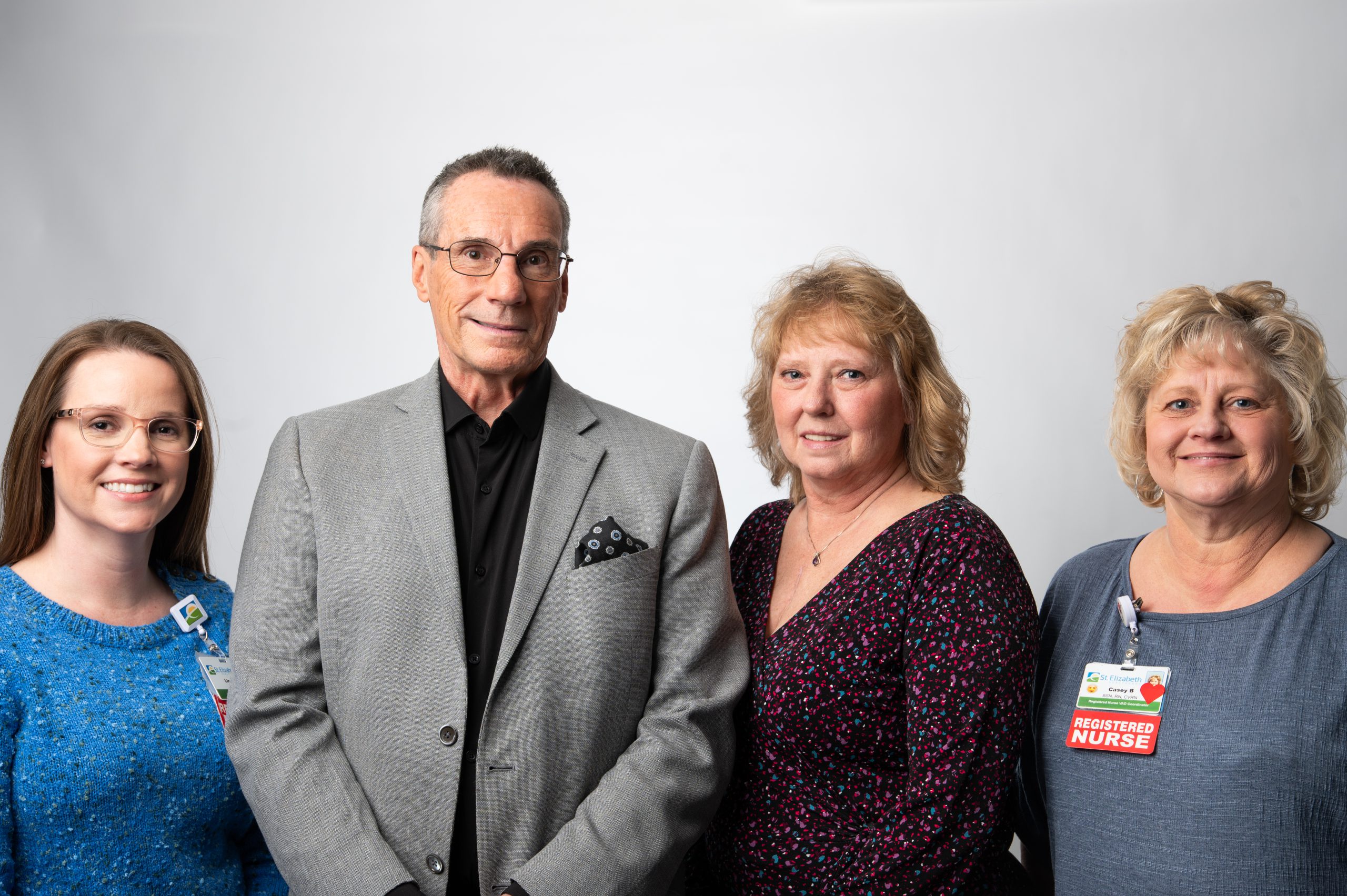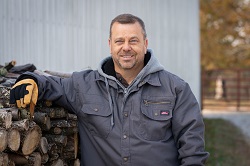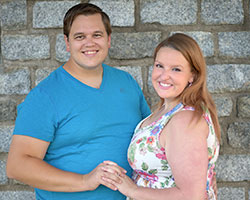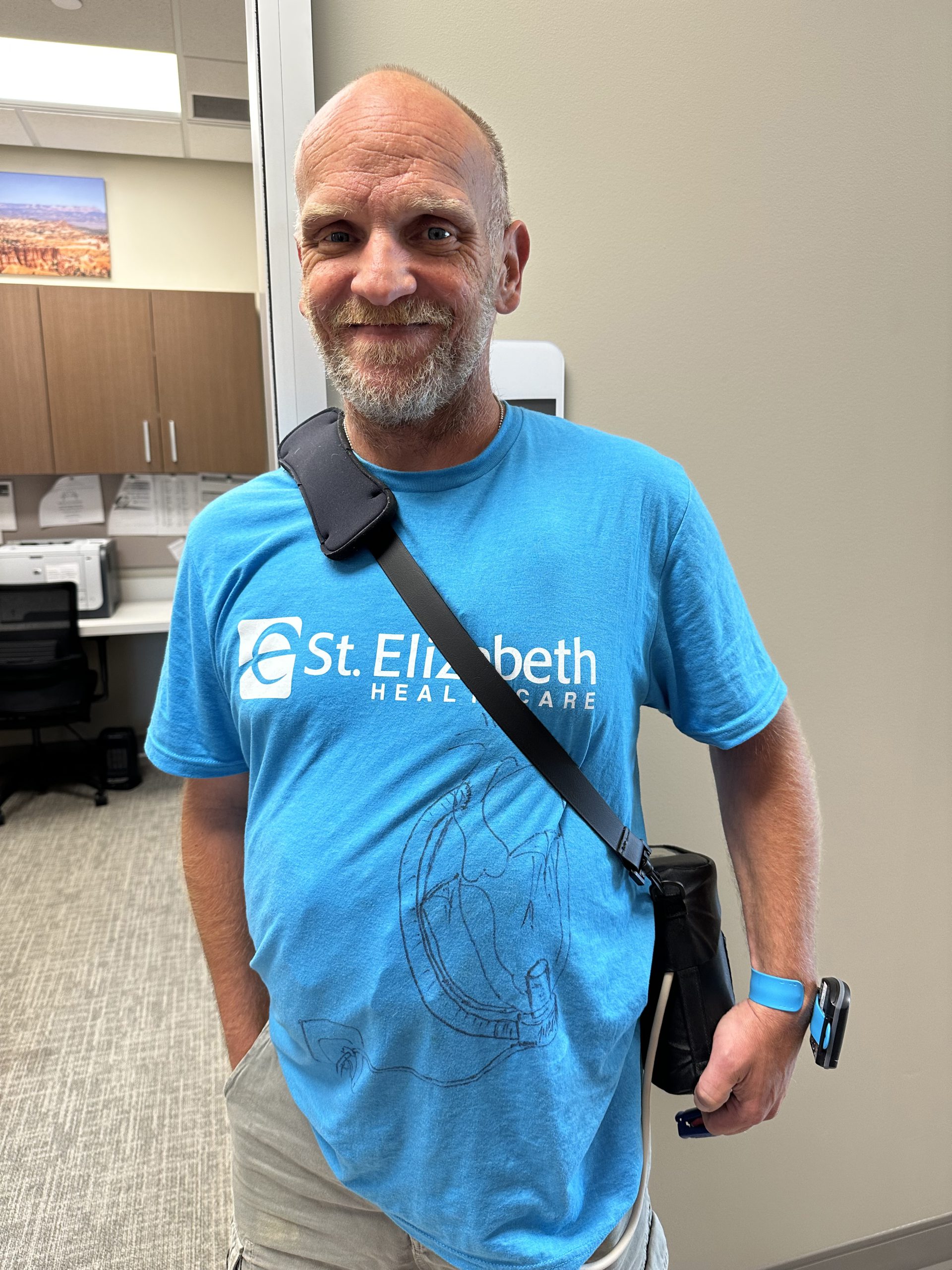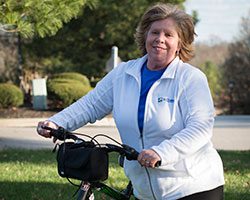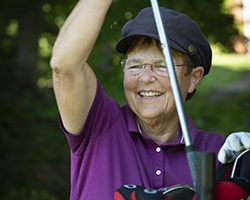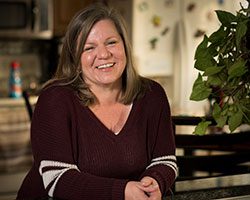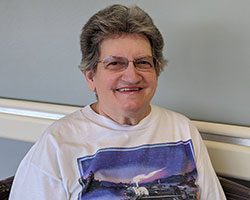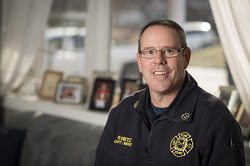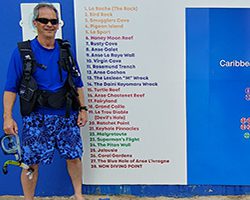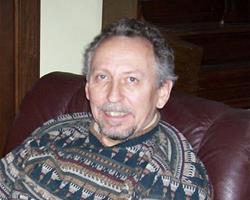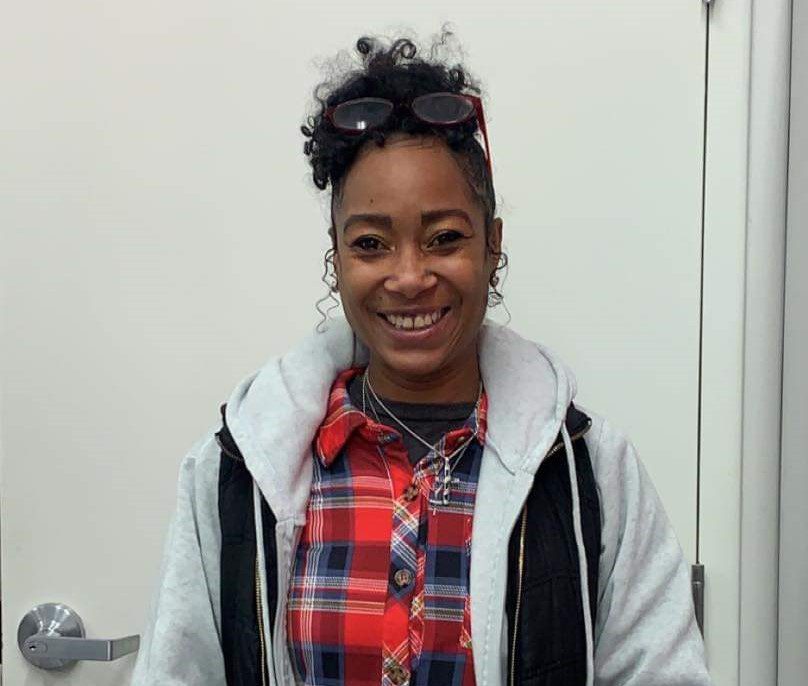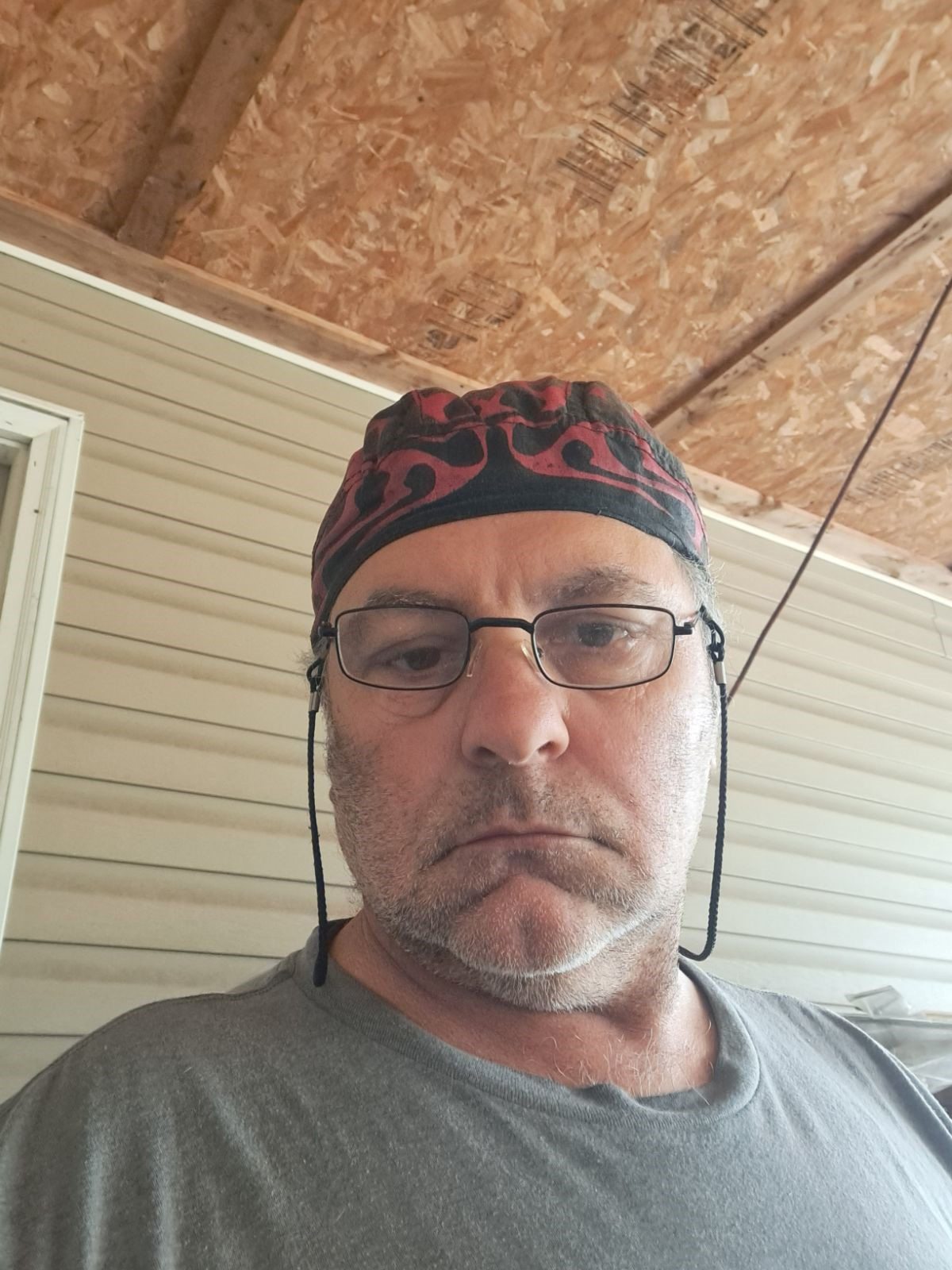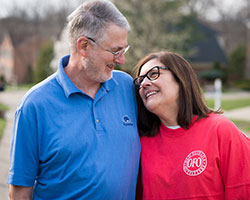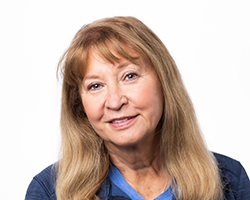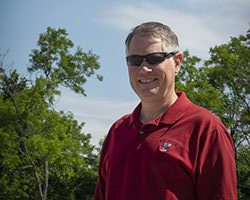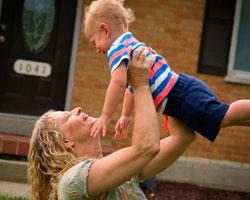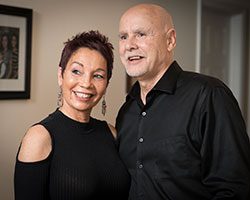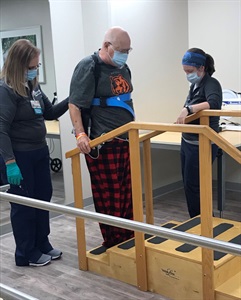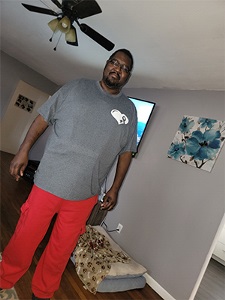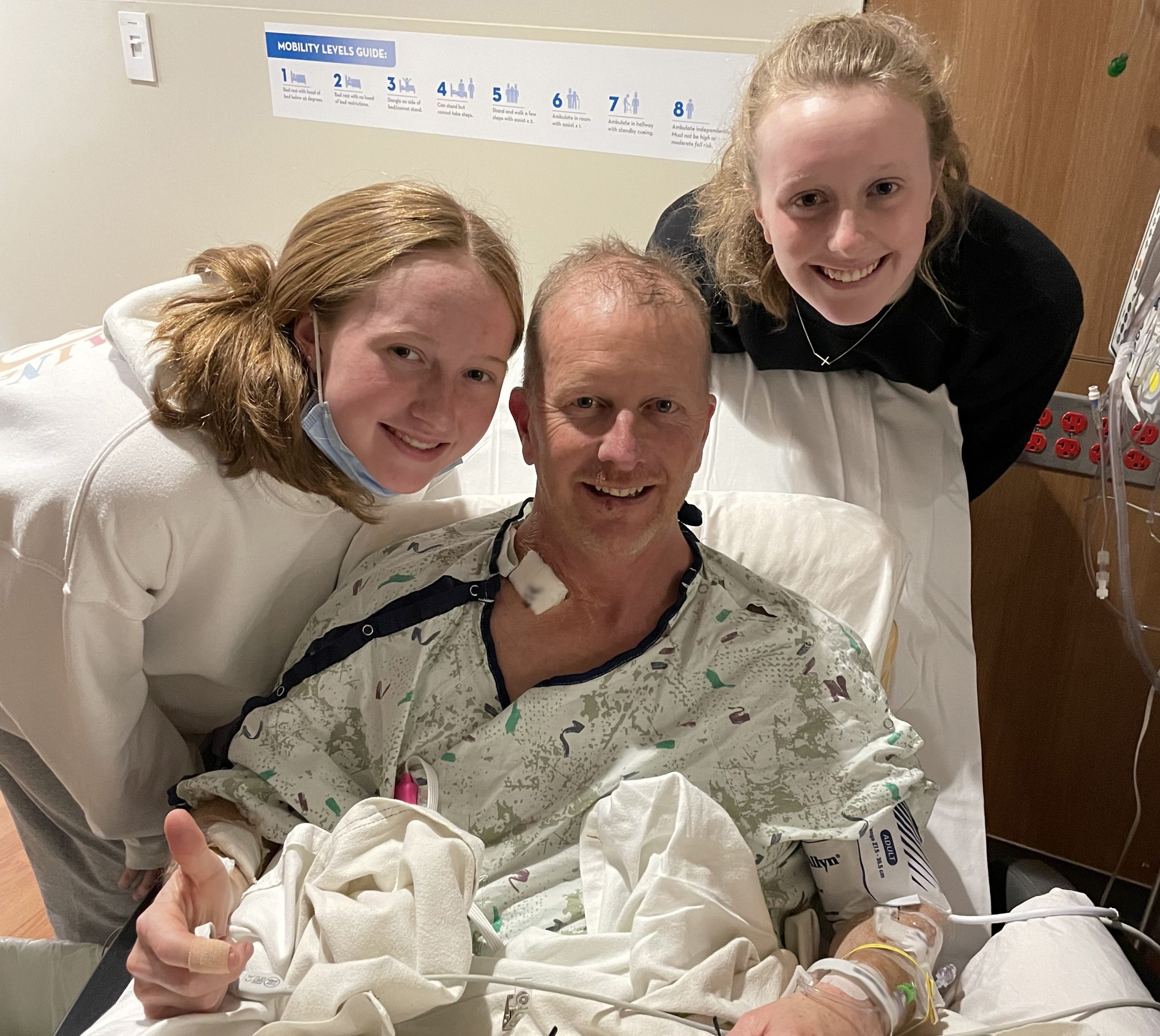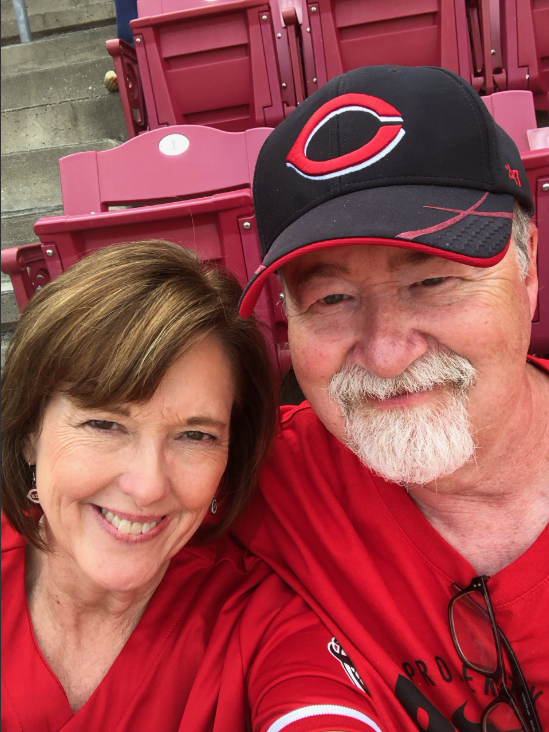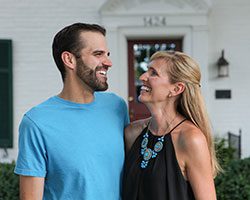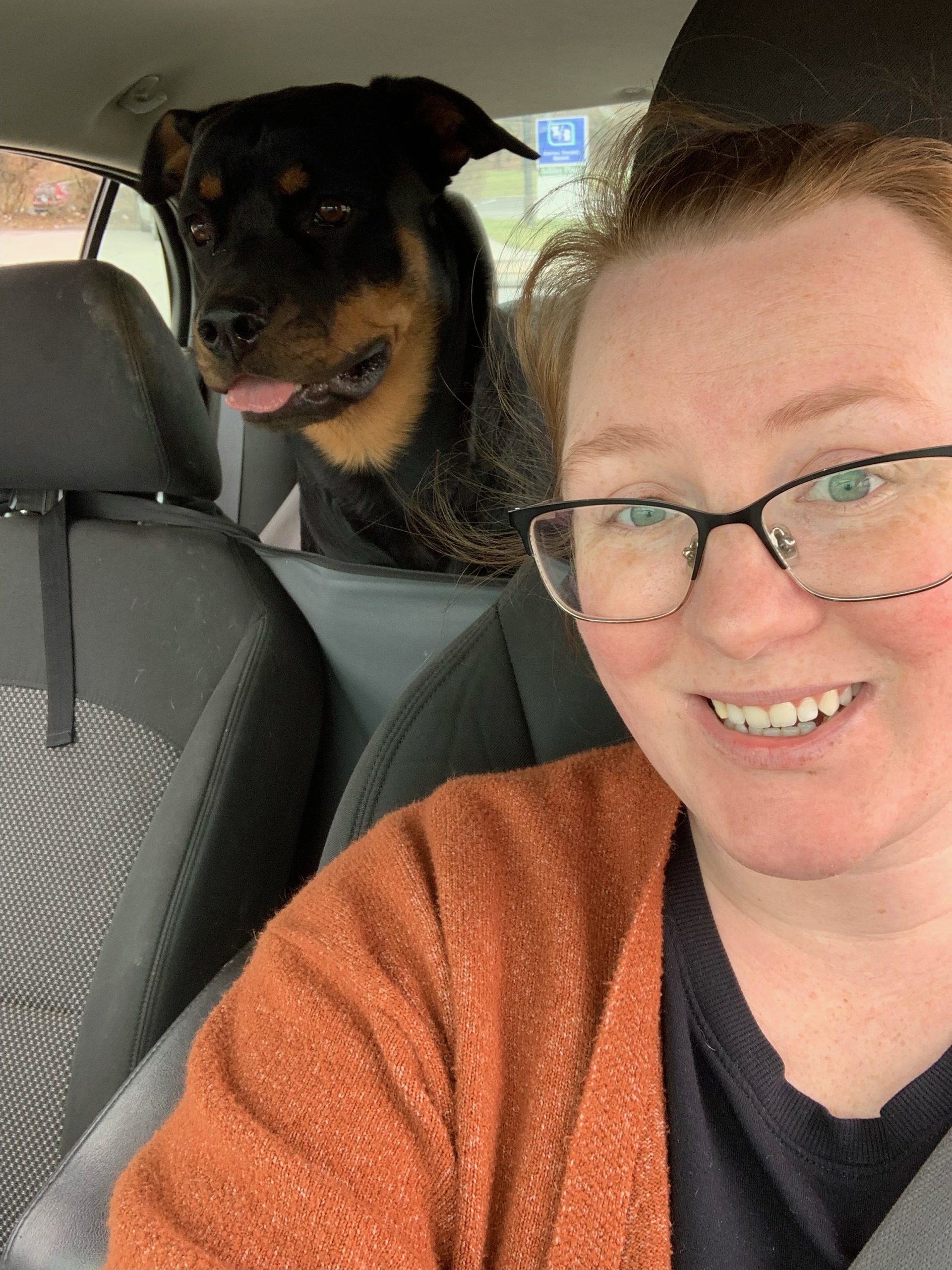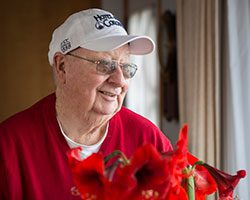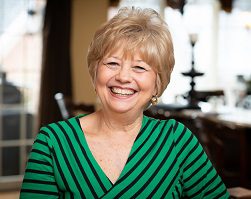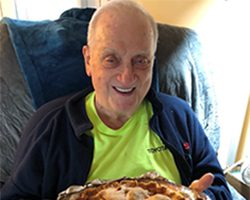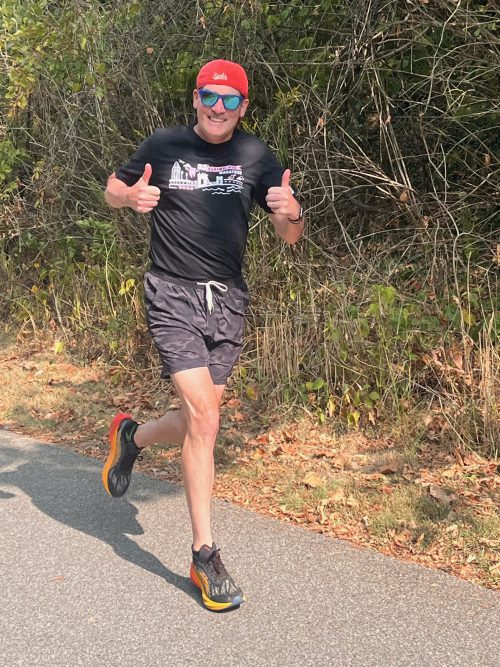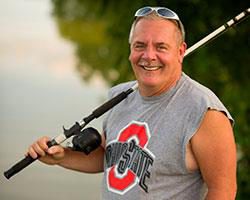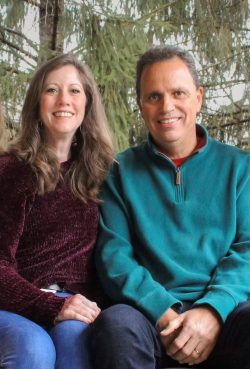Patient Success Stories
Hear From Our Patients
Get inspired reading success stories from St. Elizabeth Healthcare heart and vascular patients in Kentucky, Ohio and Indiana.
Kimberly Wells
Kim Wells never expected to face open heart surgery, but with the support of her St. Elizabeth care team and her own determination, she found healing and a new outlook on life. Her journey is a reminder to listen to your body and lean on your community during challenging times.
Patricia Wasson
Tricia was out to dinner with friends when a mini stroke changed everything. She soon learned she’d lived her whole life with a hidden heart condition. Thanks to the caring team at St. Elizabeth, Tricia faced surgery with confidence and now enjoys every day with new energy and peace of mind.
Barbara Dressman
Barbara had long dreamed of walking the 500-mile Camino de Santiago. Just weeks before her departure, a rare cardiac tumor threatened to derail her plans. Thanks to expert care at St. Elizabeth, Barbara not only recovered but completed her journey.
DJ Roy
When radio host Roy Brown faced intense heart irregularities and a mini-stroke, the expert Heart & Vascular care team at St. Elizabeth stepped in with swift, specialized care. With advanced diagnostics and a collaborative approach, Roy found his rhythm again — on the air and in life.
Michael Long
At 67, Michael Long lives with the same heart disease that has touched generations of his family. When symptoms grew serious, he turned to the Advanced Heart Failure Management Center. With expert care and a personalized plan, Michael is finding strength — and hope — for the road ahead.
Rebecca Bohn
Rebecca Bohn never imagined how much she would value life’s simplest moments. After life-threatening breathing issues, she turned to
St. Elizabeth. With expert care and advanced treatment, Rebecca regained her independence — and a new appreciation for every breath.
Veronica Williams
Veronica Williams and her husband Sean will never forget their daughter Brooklynn’s birthday. When Brooklynn arrived early, Veronica faced a life-threatening heart issue. After days of symptoms, she went to the ER, where doctors acted quickly to stabilize her.
Dustin Clark
When Dustin Clark battled severe COVID-19 symptoms, his condition quickly became life-threatening. At St. Elizabeth Healthcare, doctors acted fast — making him the first patient to receive ECMO, an advanced treatment that gave his lungs time to heal and helped save his life.
Rounding with Patients: LVAD
This inspiring episode of Rounding with Patients features the stories of Anita and John. Thanks to compassionate care from the experts at the Florence Wormald Heart & Vascular Institute at St. Elizabeth, they can look forward to many healthy years ahead.
Mike Adams
With a long history of driving a dump truck and farming on the side, Mike Adams knows the meaning of hard work. That’s why he became worried at age 46 when he was too weak to change a tire on his truck – something his 12-year-old son did with no problem.
Jessica Brungs
Taking that first step to quit smoking is the hardest part for many people. For St. Elizabeth Healthcare Nurse Jessica Brungs, it was a step she knew that she needed to take – and the Smoking Cessation program was just the thing to help her take it.
Eric Callaway
A heart attack in his 20s and a family history led Eric to think he’d never see his 40th birthday. But he did, in the hospital, recovering from surgery to insert a left ventricular assist device (LVAD).
Jeff Carr
“There was no warning, no nothing,” Karen Carr recalls of the December evening her husband’s heart stopped beating. Jeff Carr, a tall, lean construction worker at age 52, felt uncomfortable on the couch and decided to go upstairs to lie down.
Teresa Cecil
Like many smokers, Teresa got hooked early in life. She smoked her first cigarette at age 12, back when it was the “cool” thing to do. Today, she is smoke free, and she will tell you it’s not easy.
Shareen Cox
A few years after retiring, Shareen began having frequent occurrences of feeling tired and not being able to catch her breath.
Susan Cox
Susan Cox did the unthinkable—she drove herself to the hospital, even though she thought she could be having a heart attack.
Dennis Dalton
At 43 years old, Dennis Dalton doesn’t let much slow him down – not even a heart attack.
Ruby Denny
Ruby Denny will never forget what happened to her one night in early March, just before the COVID-19 pandemic escalated. She was lying in bed, ready to fall asleep, and suddenly, she had a horrible feeling in her chest.
Philip Dietz
When he was having the classic heart attack symptoms – he ignored them. At only 39, Phil felt it was too early to start worrying about a heart attack, even though he has a history of heart disease in his family.
Gary Fabre
When Gary Fabre walked into his doctor’s appointment at St. Elizabeth Healthcare in July 2020, he assumed he was only catching up on routine primary care that had been delayed by the pandemic. He felt fine, so what he learned came as a big surprise.
Ken Foltz
When Ken Foltz found out he needed mitral valve repair, he figured he would need a traditional open-heart procedure and a long recovery.
Kelly Garrett
For Kelly Garrett, a diagnosis of breast cancer was frightening enough. Just when she thought she was beating it, she learned that she was experiencing heart failure as a result of her treatment. Then a heart specialist helped her beat that, too.
Mark Grigsby
Providers at the Advanced Heart Failure Management Center at St. Elizabeth were running out of time to help Mark Grigsby. Learn about the surprise outcome one nurse describes as “like winning the lottery 10 times over.”
Mary Hoffmeister
One night, as Mary Hoffmeister was getting ready for bed, she took off her socks and saw something that caught her completely off guard.
Joyce Jacobs
Joyce felt she was healthy until a routine heart risk assessment indicated otherwise. Find out how getting preventive care saved her life.
Lee Johnson
After chest pain and normal tests, Lee Johnson trusted his gut — leading to life-saving heart surgery at St. Elizabeth Healthcare.
Eric Kirchner
As an Air Force pilot and now commercial aviation pilot, Eric Kirchner needs to be healthy, alert and ready to fly people around the globe.
Karen Lugo
The pressure between her shoulder blades would not let up. And when Karen, who is always cold, started sweating, her son called 911.
James McNutt
As he mowed his lawn in Independence, Kentucky, James felt chest pain. At first, he thought it was indigestion from hot dogs he ate for lunch, but the pain grew unbearable. He started to sweat, and a dip in the pool and a cold shower didn’t cool him down.
Kenny Moore
Kenny Moore’s progressing heart failure was leading to failing health. An implanted mechanical heart pump allowed him to become more active yet keep his own heart.
Larry Myrick
For 41-year-old Maysville resident Larry Myrick, the Florence Wormald Heart & Vascular Institute at St. Elizabeth has dramatically improved – and likely saved – his life.
Mike Quinn
As an athletic trainer, Mike Quinn is passionate about health, fitness and keeping people safe and injury-free. What is surprising is that his commitment to keeping kids safe ended up saving his own life.
Dale Randall
When he woke up with chest pain early on the morning of August 18, 2023, Dale sprang to action.
Matt Richard
The drama started on a Thursday morning for Matt and Krissy Richard. When Matt walked downstairs, Krissy quickly realized something was very wrong.
Winter Richards
Winter Richards thought she was suffering from allergies. When lab tests revealed a life-threatening heart issue, the 27-year-old was shocked.
Raymond Scheller
One day, 87-year-old Raymond Scheller realized that he could not walk to his own mailbox in Villa Hills without panting and running out of breath.
Linda Schwartz
At 74 years old, Linda Schwartz believes staying healthy should be a top priority. She also understands that to achieve that, she must maintain a good relationship with her doctors and have regular health screenings.
Kathy Shepherd
When Kathy Shepherd learned her heart was in trouble, her first reaction was disbelief.
Roy “Bud” Smith
At the age of 90, Roy “Bud” Smith still had a lot of living to do. But with a failing heart valve, his options were limited. Now 97, Bud was one of St. Elizabeth’s first TAVR patients.
David Szeremet
Endocarditis can happen to anyone. Just ask David Szeremet, who almost lost his life to the disease. Learn how St. Elizabeth Healthcare helped him heal.
Ray Webster
Ray collapsed from a heart attack on the way to his car after finishing a 12-hour shift as a forklift driver.
Heather & Gary Wyland
Learn how a Kentucky woman’s quick action saved her husband’s life during a major heart attack – and how training made that response instinctual.

